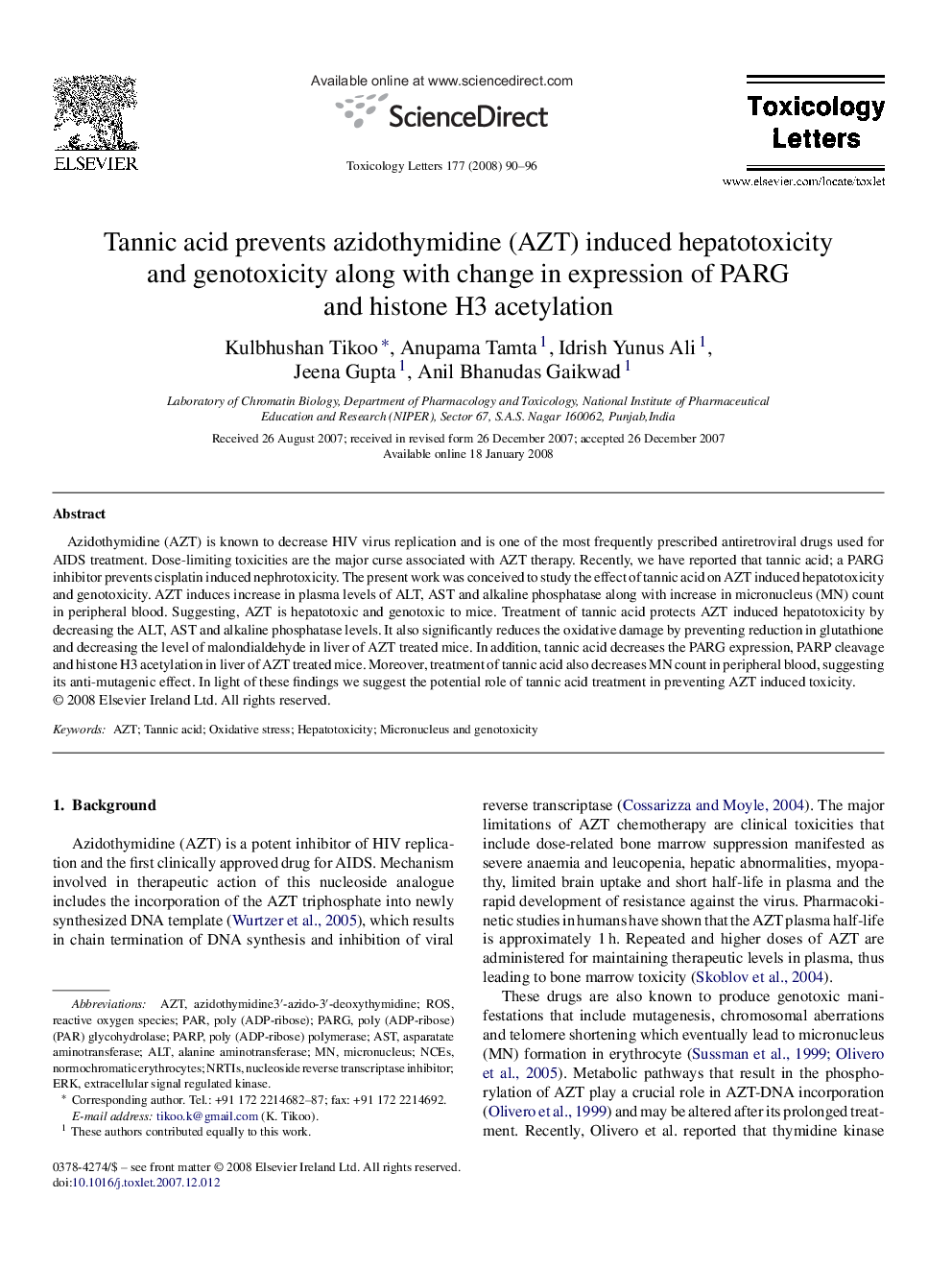| Article ID | Journal | Published Year | Pages | File Type |
|---|---|---|---|---|
| 2602113 | Toxicology Letters | 2008 | 7 Pages |
Azidothymidine (AZT) is known to decrease HIV virus replication and is one of the most frequently prescribed antiretroviral drugs used for AIDS treatment. Dose-limiting toxicities are the major curse associated with AZT therapy. Recently, we have reported that tannic acid; a PARG inhibitor prevents cisplatin induced nephrotoxicity. The present work was conceived to study the effect of tannic acid on AZT induced hepatotoxicity and genotoxicity. AZT induces increase in plasma levels of ALT, AST and alkaline phosphatase along with increase in micronucleus (MN) count in peripheral blood. Suggesting, AZT is hepatotoxic and genotoxic to mice. Treatment of tannic acid protects AZT induced hepatotoxicity by decreasing the ALT, AST and alkaline phosphatase levels. It also significantly reduces the oxidative damage by preventing reduction in glutathione and decreasing the level of malondialdehyde in liver of AZT treated mice. In addition, tannic acid decreases the PARG expression, PARP cleavage and histone H3 acetylation in liver of AZT treated mice. Moreover, treatment of tannic acid also decreases MN count in peripheral blood, suggesting its anti-mutagenic effect. In light of these findings we suggest the potential role of tannic acid treatment in preventing AZT induced toxicity.
